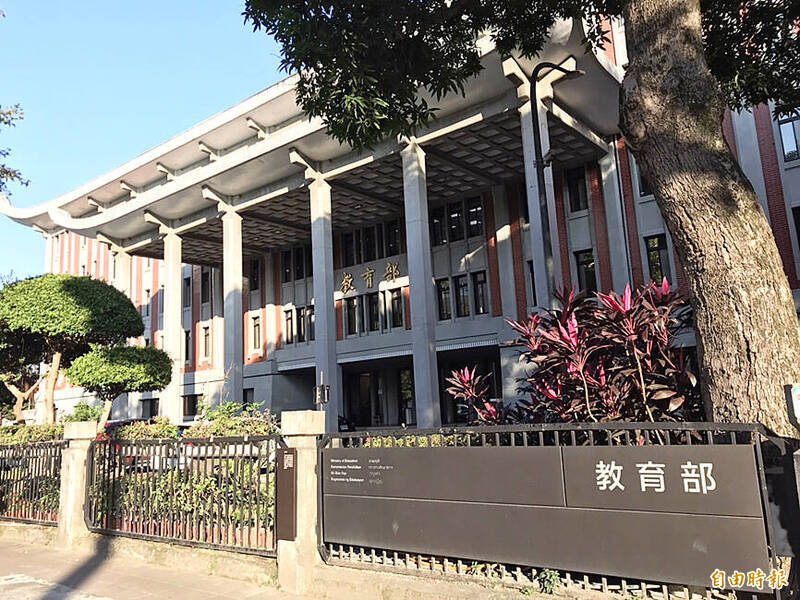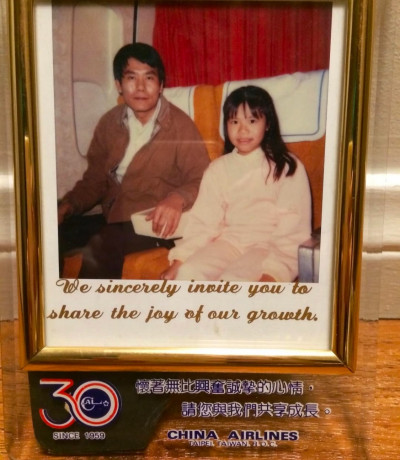《TAIPEI TIMES》 Hoklo-resource Web site launched

The main entrance of the Minsitry of Education in Taipei is pictured in an undated photograph. Photo: Yang Mien-chieh, Taipei Times
By Yang Mien-chieh and Esme Yeh / Staff reporter, with staff writer
The Corpus of Taiwanese Hoklo established by the National Academy for Educational Research has been launched online, with more than 56,000 searchable entries, the Ministry of Education said.
The ministry last year commissioned the academy to compile the collective knowledge of Hoklo (commonly known as Taiwanese) and build a retrieval system, enabling searches among more than 56,000 entries and approximately 1,400 words designated for Hoklo-language textbooks.
The system has three subsystems — linguistic material, textbook words and grammar, the ministry said, adding that it is a resource for curriculum design, proficiency assessments and linguistic research.
Teachers can consult the system to find words and information from Hoklo-language textbooks, as well as collocations — words or terms that are together more often than would be expected by chance — correlatives and audio of retrievable words to enrich their course content, while using the system’s descriptions and example sentences to help students learn better, it said.
An additional corpus of more than 26,000 Hoklo sentences, along with audio files, and artificial intelligence (AI) tools and models, is also available via an app, the ministry said, adding that it can be used as the cornerstone of AI development in speech processing and computer-assisted instruction.
Department of Lifelong Education official Chi Hsien-yang (紀咸仰) said that the retrieval system also has example sentences from the official Hoklo dictionary approved by the ministry, as well as the Mandarin-Hoklo Bilingual Dictionary (華台對照詞典) compiled by Lu Kuang-cheng (盧廣誠).
For example, querying the system for “sleepy,” which is denoted as “khun” (睏) in Hoklo, would yield the correlative entries of “hioh-khun” (歇睏, “rest”) and “hioh-khun-jit” (歇睏日, “rest day”), with links to the ministry’s Hoklo Idioms Dictionary (教育部台灣台語常用詞辭典) for further information, Lu said.
Some entries have audio files of example sentences to enhance systematic learning of Hoklo, Chi said.
Deputy Minister of Education Yeh Ping-cheng (葉丙成) on Monday wrote on Facebook that the launch of the system marked a milestone in the ministry’s history, with the content open to teachers and entrepreneurs to bolster the education sector and innovate digital learning products.
About a decade ago, the ministry granted lots of resources to universities to develop digital education resources, but most of them were rarely visited, as the universities were not adept at promoting the content, Yeh said.
Making the ministry’s resources, including the Hoklo corpus, public would facilitate teaching and software innovations, while also nurturing more research and development that could lead to a local education industry ecosystem in Taiwan, he said.
“The ministry would continue to compile digital content that were rarely visited and used, and allow people to tap into the resources via apps, expecting the new method to help build a prosperous ecosystem of the education industry in Taiwan,” he said.
新聞來源:TAIPEI TIMES












